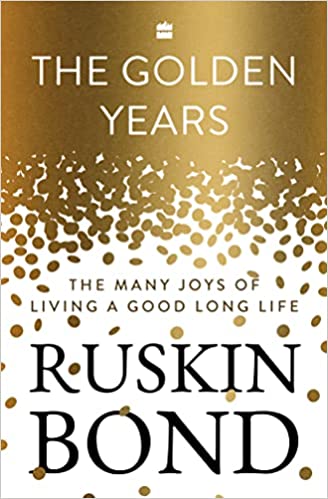


The human brain, unlike the body, keeps “ticking away” and is at its “most fertile” in the later years, says popular author Ruskin Bond as he encourages writers in their 60s or early 70s to take leaf out of the books of legendary writers Agatha Christie and PG Wodehouse and keep writing — even if it is for themselves only.
Out with his new book, “The Golden Years:
The Many Joys of Living a Good Long Life”, Bond, who turns 89 on Friday, believes that for writers the nice thing about growing old is that it gives them more to write about — love, friendship, adventure, achievements, a changing country, a changing world, changing ways of life, history in the making.
“There is a certain joy in writing, in putting words down on paper and creating a story or a poem or a novel or even a memoir, and if no one else enjoys what you have composed.
Never mind, you have done it for yourself and your own pleasure.”
“The human brain is at its most fertile in our later years, when there’s a lifetime of experience at our creative disposal,” Bond writes in the book.
Wondering why people retire at all, Bond gives the example of legendary crime novelist Agatha Christie and popular English writer PG Wodehouse, who went on to create great works in their 80s and 90s, respectively.
“Well into her eighties Agatha Christie was inventing crimes for her detective Hercule Poirot to investigate and solve. PG Wodehouse, when ninety, was till regailing us with the exploits of Bertie Wooster and his butler Jeeves, the members of the Drones Club, and Lord Emsworth and his prized pig,” he notes.
Someone who practises what he preaches, Bond since his debut novel, “The Room on the Roof”, in 1956 has written over 500 short stories, essays and novellas along with more than 50 books for children.
Here, the celebrated Landour-based author adds that neither success nor failure should be the deciding factor for a writer to stop writing at a certain age.
“If you have reached the pinnacle of your writing career, why stop? And if you haven’t achieved what you set out to, why give up?,” asks the illustrious author. He also acknowledges Indian writers — including RK Narayan, Mulk Raj Anand Khuswant Singh and Nayantara Sehgal — in the list of those who continued to be productive in the later stages of their lives.
Though dealing with writers mostly, he clarifies that there are so many in other professions — films, music, politics, scientific, research, medicine — who do not allow the advance of age to deter them from their creative pursuits.
“As we grow older we are bound to be hampered by health issues — our bodies were not made to last forever — but if life is to be worth living, we must continue with our work, be it for pleasure or profit… The body might falter, but the brain keeps ticking away,” he adds.
Published by Harper Collins, “The Golden Years”, priced at Rs 399, is a book about growing old and liking it where the author In his trademark warm and witty style tells readers how to enjoy advancing years and make the most of the amazing gift called life.